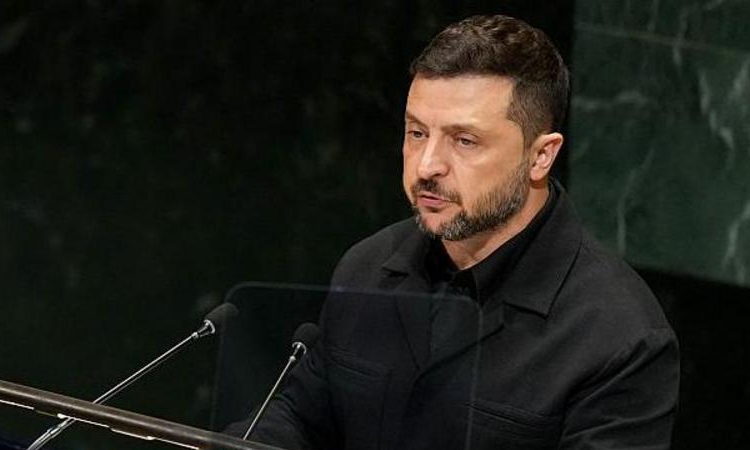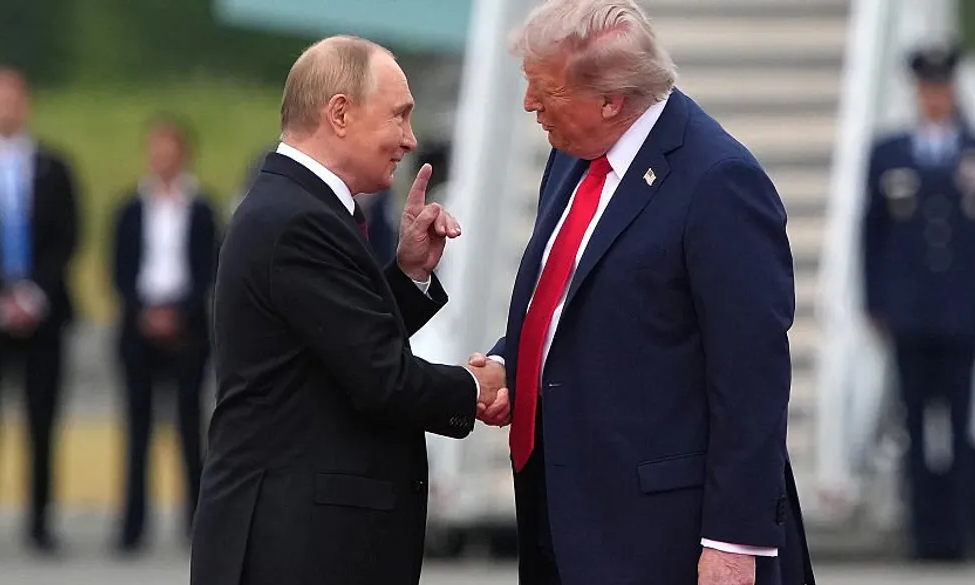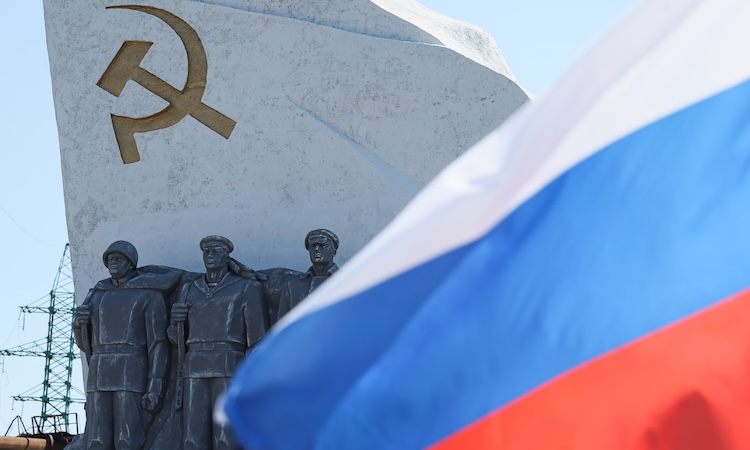In the video above, Alex Christoforou and Alexander Mercouris of The Duran discuss the significance of Russia’s military mobilisation and the upcoming referenda.
*****
Referenda are to be held in the next few days in the Donetsk and Lugansk people’s republics (known collectively as the Donbass) to ascertain whether they wish to form part of the Russian Federation. The same question is to be asked in the south-eastern regions of Kherson and Zaporozhye.
These referenda were announced in concert with the announcement by President Vladimir Putin of a partial mobilisation of 300,000 Russian troops, perhaps signalling the end of the special military operation and the beginning of a war of broader scope – a war in defence of Russia itself.
The significance of this shift is likely to be lost on many who live in the west, kept in the dark as they have been about the fact that the majority of the fighting in Donbass over the last seven months has been carried out by local militia (the self-defence forces of the Lugansk and Donetsk people’s republics), whom Russian airpower and artillery have been supporting.
As Alex Christoforou and Alexander Mercouris of The Duran discussed in a recent video (see above), Russia’s self-imposed restrictions, and the nature of its supporting role to date, have meant that it has been fighting with its hands tied, leaving most of Ukraine’s vital infrastructure intact, and with minimal forces (less than 200,000 men) against everything Nato has been able to throw onto the battlefield via its proxies and mercenaries in Ukraine.
Are the gloves about to come off?
Assuming the referenda are positive and the provinces involved are absorbed into the Russian Federation, any subsequent encroachment by Ukronazis will be treated as a direct assault on Russian territory, and as such, an existential threat to Russia that would be answered by any means necessary.
A Kremlin spokesman interviewed on the BBC was asked whether Russia would contemplate using a nuclear weapon against Ukraine. No, he replied (in so many words), there was no intention of nuking the brothers in Ukraine: it was the west that should look out if it’s tempted to try for nuclear escalation.
Most speculation in the media misses this point, obsessing about tactical nukes rather than long-range weapons. It is one thing to train thousands of soldiers to be sent back to die in Ukraine; it is something else to contemplate the possibility of rockets aimed at London.
The west, alarmed at this plain speaking, cheers itself up by claiming that Putin is bluffing and that it is Russia’s supposed “military reverses” that are prompting this “sabre rattling”. Such voices will be stilled when it becomes clear that many of the legal constraints hemming in the special military operation kind of conflict – for example a verbot on attacking civilian infrastructure – under international law do not obtain when it’s a case of defending the homeland.
Some commentators have suggested that the infusion of 300,000 more troops could signal a move to accelerate military operations, now “with the gloves off”.
A quagmire of the west’s own making
None of this needed to happen. In December, when Russia demanded security guarantees to counter escalating provocations and Nato expansion on Russia’s borders, this could have been taken seriously and acted upon. Because it was not dealt with, the special military operation was obliged to cross the border in February to help clean out the nazis directly.
And even then, a negotiated peace remained a possibility, something that the west’s stooge actor-president Volodymyr Zelensky himself appeared to entertain in the early days of the operation.
According to the Conflicts Forum’s weekly comment: “Originally Team Putin was angulated towards a negotiated settlement in Ukraine, just as in Syria. And it almost happened. Turkey again mediated, with peace talks occurring in Istanbul in late March, with promising results showing.
“In one respect however, events here did not follow the Syria pattern. Boris Johnson immediately scuttled the settlement initiative, warning Zelensky that he must not ‘normalise’ with Putin; and if he did reach some accord, it would not be recognised by the west.” (23 September 2022)
But imperialism vowed to keep pouring dollars and weapons, and the poor bloody Ukrainian infantry into an unwinnable war, hoping that by keeping going they could wear the Russian enemy down militarily whilst sanctions wore him down through the economic war on the home front.
The situation is similar to what happened with Finland with the Winter war of 1939. The USSR requested some minimal border adjustments from the Finns in order to deprive German imperialism of an easy line of attack against Leningrad. These adjustments would actually have resulted in a net gain of Finnish territory.
Instead, Helsinki, egged on by Berlin from the sidelines, chose to provoke a war with Russia – a war that ended with the defeat of Finland and the actual loss of some territory. That Russia had been justified in anticipating war with Germany and taking proactive steps to defend herself was made clear by the subsequent 1941 invasion – an invasion in which the Finns were enthusiastic participants.
Today, the imperialist lie machine accuses Russia of conducting a ‘land grab’ in Ukraine. Western media and politicians claim (in advance!) that the popular referenda are ‘fake’ and pretend that Russia is ‘annexing’ parts of Ukraine – just like all the ‘other’ imperialists do in their aggressive wars.
And these impudent lies are given greater currency thanks to the muddle and cowardice of the left swamp, whose members are only too glad to furnish ‘Marxist’-sounding arguments to prove that Russia is just another imperialist power, no different from Britain, France, Germany and the USA – thereby absolving themselves from any moral responsibility to stand in solidarity against real imperialism.














